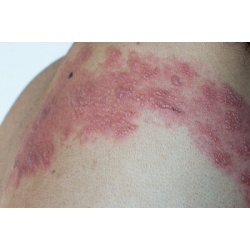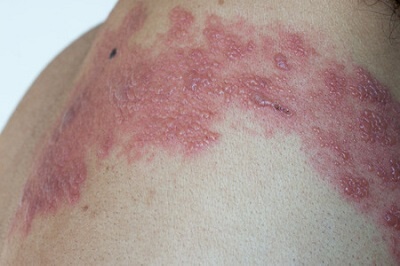
Shingles can be avoided or minimized with vaccine
If you or someone you know has experienced shingles, you know what a painful experience it can be.
Shingles is caused by the varicella-zoster virus — the same virus that causes chickenpox. After you've had chickenpox, the virus lies inactive in nerve tissue near your spinal cord and brain. Years later, the virus may reactivate as shingles. Shingles is more common in adults 50 years+ and people with weak immune systems.
Pain is usually the first symptom of shingles. For some, it can be intense. Depending on the location of the pain, it can sometimes be mistaken for a symptom of problems affecting the heart, lungs or kidneys. Some people experience shingles pain without ever developing the rash.
Shingles can cause a painful rash. Most often it appears as a single stripe of blisters that wraps around either the left or the right side of your torso. Sometimes the rash occurs around one eye or on one side of the neck or face.
Once the rash is gone, some people experience burning, stabbing, shooting symptoms of nerve pain caused by the original shingles disease called post-herpetic neuralgia. This can be extreme and last for several months after the actual shingles attack has resolved.
While it isn't a life-threatening condition, shingles can be very painful. A vaccine can help reduce the risk of shingles, while early treatment can help shorten the infection and lessen the chance of complications.
There is still a chance a vaccinated person can get shingles. If you get the vaccine, and develop shingles later, the episode will be much milder compared to an unvaccinated person who gets shingles.
According to Marcy Fadness, PA-C at the VA outpatient clinic in Decorah, you need a prescription from your health care provider to receive the vaccine. It can be given to anyone age 50 or older. The one time injection is given under the skin at the back of your arm and side effects are uncommon, mostly discomfort at the site of the shot.
If you are 50 years or older, you may want to consider getting the shingles vaccine. Call your health care provider for an appointment and check with your insurance, as some companies will pay a portion or all of the cost.
Site designed and maintained by Iroc Web Design Services©.
Your Small Business Web Design Solutions.™


